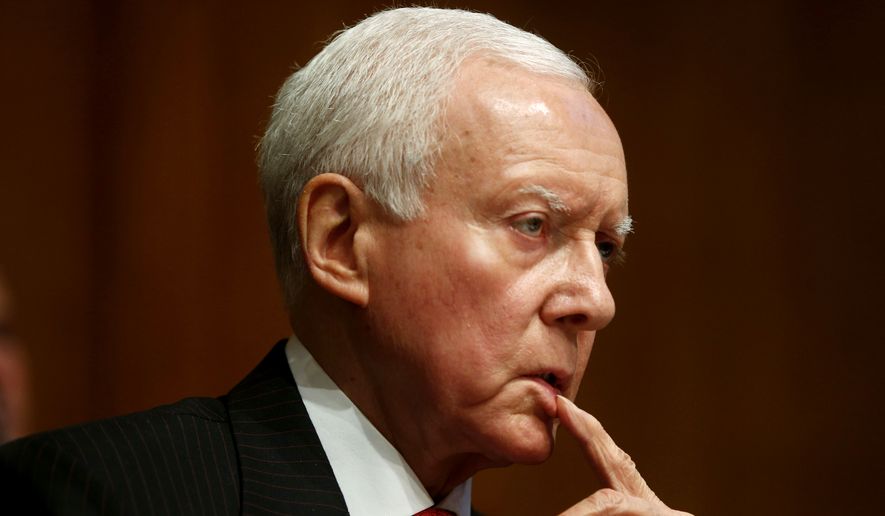The next attack on Obamacare is taking shape as a bipartisan group of senators introduced a bill Tuesday to eliminate the medical device tax, despite new doubts about how harmful the tax really is.
Designed as a way to raise money to help pay for Obamacare, the 2.3 percent excise tax has long been a target for repeal for lawmakers who represent states where manufacturers make the products, including pacemakers, X-ray equipment and artificial hip replacements.
“Every dollar medical device manufacturers spend on this onerous tax is a dollar taken away from American innovation, job growth, and the ability to provide groundbreaking medical technologies to patients in need,” said Sen. Orrin G. Hatch, chairman of the Senate Finance Committee, who led the group of 10 senators, evenly split between Republicans and Democrats.
Another version of the bill introduced in the House already has drawn more than 250 sponsors, including 29 Democrats, so the measure’s prospects of getting to President Obama’s desk are rosier than the GOP’s first salvo against Obamacare — a push to redefine full-time work under the overhaul. Mr. Obama has already vowed a veto of that change.
Industry studies say the medical device tax cost the sector more than 30,000 jobs in the first year alone.
But the Congressional Research Service, in a report last week, said the effect would be more muted — a drop of less than 1 percent in employment for the industry.
SEE ALSO: John Boehner plot: Ohio bartender Michael Hoyt intended to poison, shoot House speaker
“A number of concerns have been raised about the effects of the tax on research and innovation in the medical device industry,” the researchers wrote. “The relatively small effects on the industry suggest that innovation and research would be minimally affected.”
The Advanced Medical Technology Association, said the study was fundamentally flawed and tone-deaf to intense competition within its industry.
“Prices are actually declining in major sectors of the industry, but the CRS assumes the tax can be ’passed on’ to purchasers,” such as patients and hospitals, AdvaMed spokeswoman Wanda Moebius said. “That’s simply not the case.”
It is unclear if Congress will be able to find money to offset the $29 billion in revenue the medical device tax is expected to bring in over the next decade, which would be lost in a repeal.
Democratic leaders have defended the tax, saying the manufacturers have more customers thanks to Obamacare, so they can afford to pay.
Yet Senate Republicans hold 54 votes, and five Democrats — Sens. Amy Klobuchar and Al Franken of Minnesota, Joe Donnelly of Indiana, Bob Casey of Pennsylvania and Jeanne Shaheen of New Hampshire — have sponsored the bill, meaning the bill is close to being able to survive a filibuster.
SEE ALSO: Volunteer firefighter Obamacare mandate exempt under House-passed bill
The GOP’s other swipe at Obamacare is facing steeper odds. House lawmakers easily passed a bill to change the law’s definition of full-time work from 30 hours to 40, but many Senate Democrats have signaled they’ll try to thwart the change.
• Tom Howell Jr. can be reached at thowell@washingtontimes.com.




Please read our comment policy before commenting.